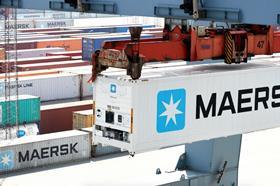
AP Moller-Maersk has announced that it is further assisting its customers in decarbonising their supply chains through the launch of an Emissions Dashboard.
The Emissions Dashboard is an analytical data tool where customers are provided with carbon footprint measurements from their entire supply chain. This gives a detailed emissions overview whether their products are transported via truck, train, plane, or vessel.
According to Maersk, an emissions overview allows companies to disclose emissions information to the public, covering all their container flows.
“As our customers trust Maersk with a wider part of their supply chains, they also expect from us that we assist their climate actions through sustainable end-to-end offerings,' explained Vincent Clerc, CEO of ocean and logistics.
'An increasing share of our customers are setting ambitious sustainability goals, making emissions visibility critical in order to document performance towards these targets,' he noted. 'The Emissions Dashboard will ensure full visibility for our customers to leverage on their journeys towards decarbonised supply chains.”
The Emissions Dashboard handles emissions data from all carriers involved in the end-to-end supply chain – not only emissions data from Maersk.
Maersk said that it provided customers with the opportunity to get a detailed overview of their opportunities to lower emissions from the transport of their products. At the same time the data creates a solid basis for logistics emissions reporting which can be used in corporate sustainability reports.
The Emissions Dashboard has been tested by ten key customers of Maersk who have provided positive feedback.
“Maersk and Syngenta have a joint vision to significantly reduce our carbon footprint for transport and logistics,' said Ai May Ong, global logistics capacity manager at Syngenta, one of the ten companies.
'We know that to succeed, we will need high-quality emissions data,' May Ong continued. 'The clear visuals and insights provided by the Emissions Dashboard offer an accurate picture of our emissions, guide our decision-making, and help us identify the most impactful changes we can make. Our collaboration with Maersk moves us towards a more sustainable future.”



